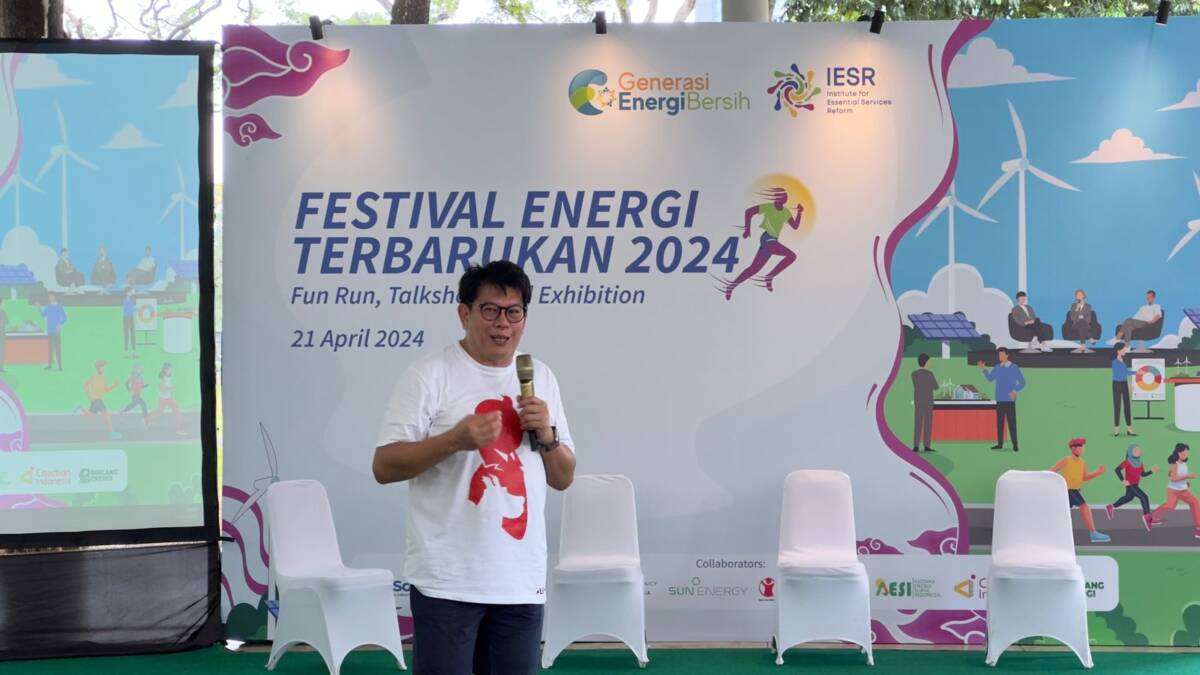
Jakarta, April 21, 2024 – The increase in global temperature due to increased greenhouse gas emissions has an impact on the climate crisis which triggers an increase in the intensity of hydrometeorological disasters. Based on data from the World Meteorological Organization (WMO), the earth’s average temperature in 2014-2023 has been at 1.2 -1.3 degrees Celsius above the average of 1850-1900. Efforts to limit the earth’s temperature so as not to cross the threshold of 1.5 degrees Celsius need to be seriously encouraged by actions and policies to reduce greenhouse gas emissions.
As part of commemorating Earth Day and increasing public understanding for action to reduce emissions, the Institute for Essential Services Reform (IESR), a think tank in the field of renewable energy and the environment, held a Renewable Energy Festival on Sunday, April 21, 2024. Through this festival, IESR invites the public to contribute to personal emission reduction actions and encourage the use of renewable energy to mitigate global temperature rise. The festival included three events consisting of a low-emission fun walk, a seminar and a presentation on renewable energy. Around 108 participants were involved in this event.
Fabby Tumiwa, the Executive Director of IESR, said that the Renewable Energy Festival is an effort to mobilize concrete actions to support the energy transition in Indonesia in order to achieve the zero-emission target in 2060 or sooner.
“The community plays a big role as a pioneer of the use of renewable energy and an ambassador who voices the importance of Indonesia’s renewable energy. Thus, it can encourage policies that support the development of renewable energy. In addition, public awareness of emission reduction will also make people more responsible in using energy through energy savings,” said Fabby.
Fabby added that proper public understanding of renewable energy will encourage greater public involvement in reducing personal and national scale emissions.
Real individual actions in reducing emissions encouraged in this event include using energy sparingly, relying on public transportation or electric vehicles that have minimal emissions and using renewable energy such as solar energy.
Marlistya Citraningrum, Program Manager of Sustainable Energy Access, said that collaboration between the government, civil society communities, academics and stakeholders will strengthen joint efforts to reduce emissions more quickly and massively.
“With collaboration, we can reach out to a wider community in Indonesia and spread the spirit to play a role in creating momentum to accelerate the energy transition and realize a zero-emission Indonesia,” said Marlistya.

